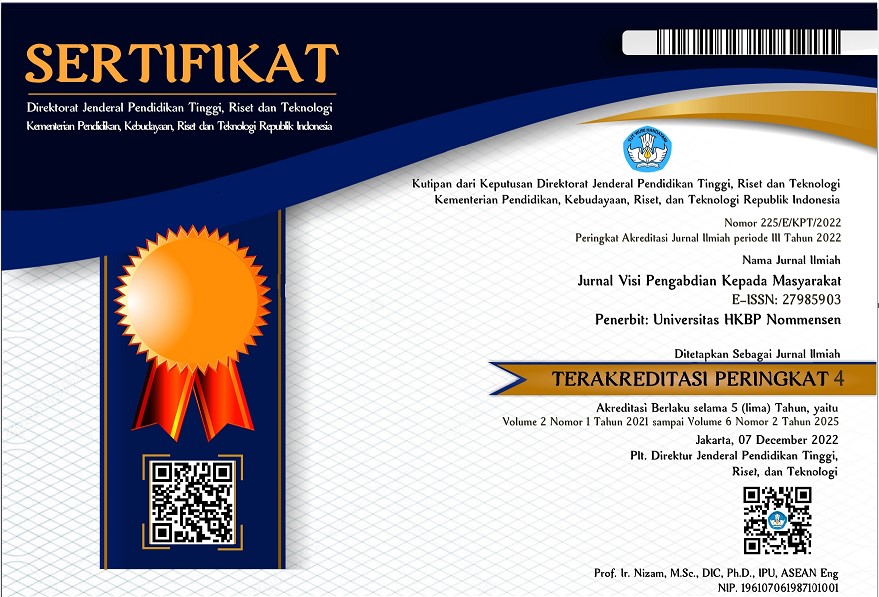Theory of Bandura's Social Learning in The Process Of Teaching at SMA Methodist Berastagi Kabupaten Karo
DOI:
https://doi.org/10.51622/pengabdian.v3i2.729Keywords:
Bandura’s Social Learning,, Process of TeachingAbstract
Learning is the process of change in human character, and these changes are manifested as an increase in the quality and quantity of behavior, such as improve skills, knowledge, attitudes, habits, understanding, skills, thinking abilities, etc. To make learning enjoyable, each class should include an activity that allows students to gain new knowledge and skills. Learning activities of this type must bridge the gap between prior knowledge held by learners and new knowledge created by them. One of the psychologists known for learning theory is Albert Bandura. Albert Bandura emphasizes the importance of observing, modeling, and imitating the behaviors, attitudes, and emotional responses of others. Social learning theory considers how environmental and cognitive factors interact to influence human learning and behavior. Albert Bandura's Social Learning emphasizes the importance of the learner develop their own knowledge or information gained from model observations the surrounding environment. The learner organizes all the information in detail code. The process of preparing each code can be repeated, allowing learners to real-time feedback can be provided. The learner's behavior is the result of competence. The learner interprets knowledge or information, imitates the model, and then recognizes process and identify desired action goals. Encourage learners to think critically and creatively. Analyzing the problem and offering alternative solutions is critical to the problem.
Downloads
References
Bandura, A. (1977). Self-efficacy: toward a unifying theory of behavioral change. Psychological review, 84(2), 191.
Pastorelli, C., Caprara, G. V., Barbaranelli, C., Rola, J., Rozsa, S., & Bandura, A. (2001). The structure of children's perceived self-efficacy: A cross-national study. European Journal of Psychological Assessment, 17(2), 87.
Cherry, Kendra. “Social Learning Theory: An Overview of Bandura’s Social Learning Theory”. http://psychology.about.com/od/ developmenta lpsychology/a/social-learning/.
Driscoll, M. P. (1994). Psychology of Learning for Instruction: Allyn & Bacon, A Division of Paramount Publishing, Inc., 160 Gould Street, Needham Heights, MA 02194.
Hoffman, L. W. (1993). Hoffman Devlopmental Psychology Today: McGraw-Hill Education-Europe
Muro, M., & Jeffrey, P. (2008). A critical review of the theory and application of social learning in participatory natural resource management processes. Journal of environmental planning and management, 51(3), 325-344.
Shuell, T. J. (1986). Cognitive conceptions of learning. Review of educational research, 56(4), 411.
Weinstein, C. E., & Mayer, R. E. (1986). The teaching of learning strategies. Handbook of research on teaching, 3, 315
Pangaribuan, M. (2020). The Effec Of Contextual Teaching And Learning Method In Writing English Paragraph At English Depeartment FKIP Nommensen Pematangsiantar. Visi Sosial Humaniora, 1(2), 76-85.
Napitupulu, F. (2021). The Improving Of Students Ability In Writing Research Background Of Classroom Action Research Proposal By Using Scientific Approach. Visi Sosial Humaniora, 2(1), 1-16.
Published
How to Cite
Issue
Section
Copyright (c) 2022 Sondang Manik

This work is licensed under a Creative Commons Attribution 4.0 International License.












